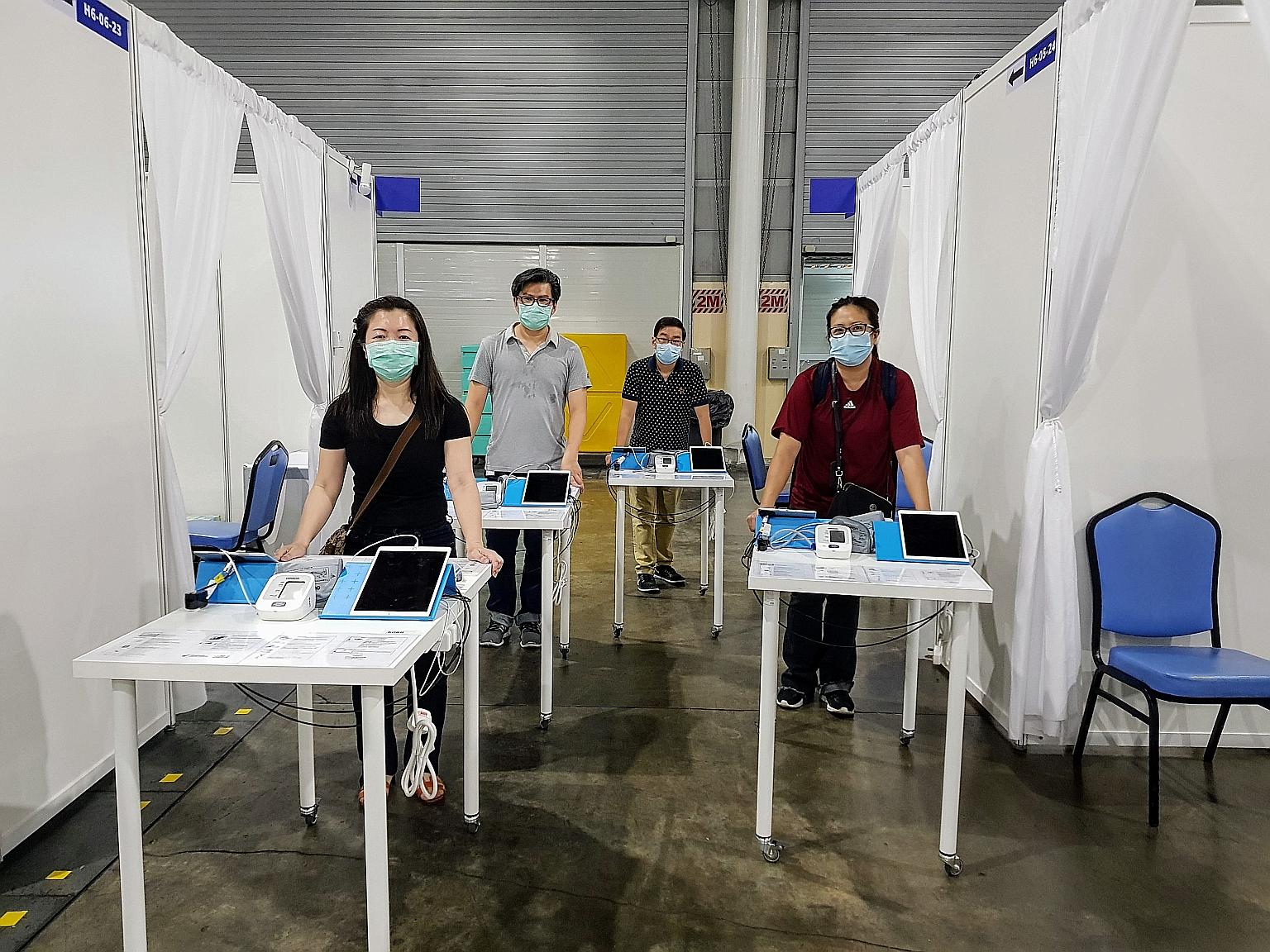Mobile kiosks boost efficiency at community care facilities
Sign up now: Get ST's newsletters delivered to your inbox

Integrated Health Information Systems staff with the mobile kiosks at Singapore Expo. The kiosks allow patients to take their own vital signs readings.
PHOTO: IHIS
A system of mobile kiosks, which allow Covid-19 patients at community care facilities (CCF) to take their own vital signs readings, is among several ways technology has aided Singapore's fight against the pandemic, said the head of the national technology agency for public healthcare.
Mr Bruce Liang, chief executive officer of Integrated Health Information Systems, told an international forum yesterday that these kiosks, dubbed Telehealth On Wheels, are not only more efficient, but also reduce the exposure risk of healthcare workers and engineers.
How they work: Patients head to these mobile kiosks to take their oxygen level, blood pressure and temperature, and input that data into tablets. The information is then sent to a dashboard, which can be monitored by healthcare workers.
If any patient's readings go beyond the healthy range, the system alerts nurses, who can then attend to the patient individually.
This does away with the need for nurses to physically take vital signs readings for each patient one by one, which is required thrice a day.
According to Mr Liang, patients' compliance rate for the self-monitoring of vital signs has been more than 90 per cent. If anyone fails to input the data in a timely manner, it is flagged in the system, and nurses send SMS reminders.
As the kiosks are mobile, they can be wheeled out easily and exchanged if they are faulty.
"The engineers won't have to wear full PPE (personal protective equipment) and go into the red zone," said Mr Liang, referring to where the patients reside.
CCFs, such as the facility at Singapore Expo, house patients with mild symptoms and lower risk factors.
Mr Liang was among several speakers giving virtual presentations at the Cities Against Covid-19 Global Summit on how different cities around the world have used technology to fight the pandemic.
He also talked about how his agency adapted the outpatient system GPConnect, normally used by general practitioner clinics, for inpatient care to suit the needs of those in the CCFs. This solution could be deployed much quicker than, say, creating a new system from scratch.
GPConnect, which can access the National Electronic Health Record, contains information such as personal data, laboratory test and swab test results, and admission and discharge details.
By modifying a field in the system to assign bed numbers, it could then support the tracking of patients with bed numbers.
Other speakers at the forum shared about various tech initiatives used in Seoul, Taipei and Rome to battle Covid-19.
The health authorities in South Korea, for example, use closed-circuit television camera footage, mobile phone GPS (global positioning system) data and credit card records to verify the whereabouts of patients in contact tracing.
In Taipei, individuals under home quarantine orders had their movements tracked with the help of mobile phone GPS data as well. If the quarantined person left his house, an alarm would be triggered on the phone and sent to the police and local officials.
Taiwan developed a virtual map informing users of the nearest pharmacies, and those that still had face masks in stock. A mask rationing system allowing residents to purchase a set number of masks was also implemented, with checks done by scanning residents' health insurance cards.


